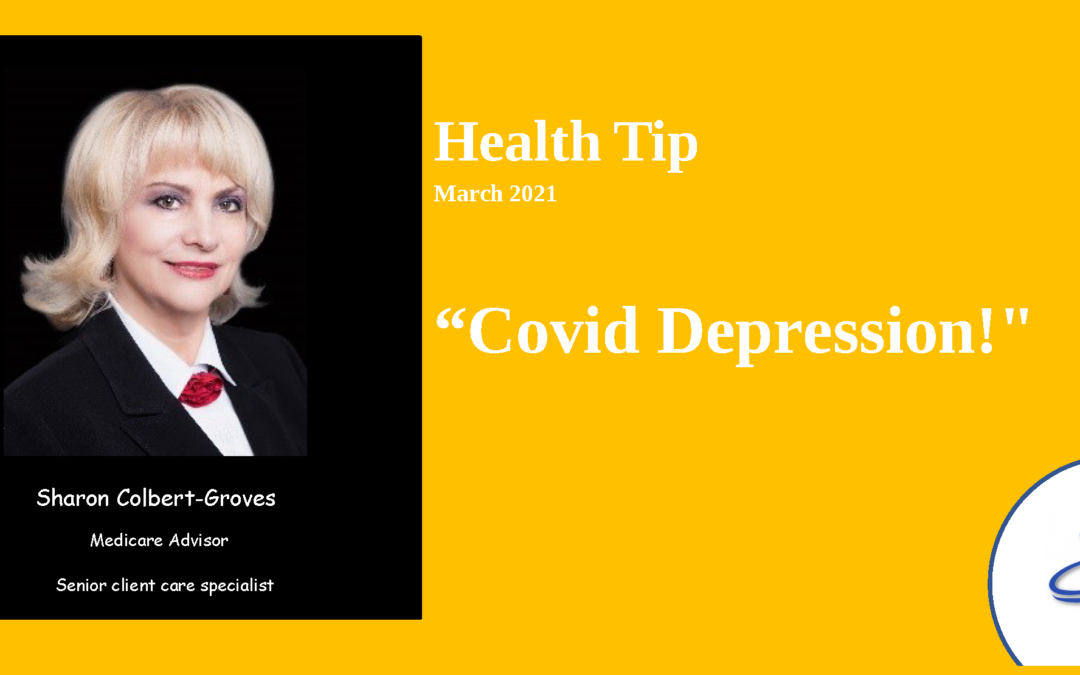While people are focused on following local guidelines, (we all know them by now), there is an area many have overlooked and denied….Depression! Research shows extreme social distancing, similar to those taken during the SARS, Ebola, and H1N1, could cause short-term and long-term problems such as stress, insomnia, emotional exhaustion, and substance abuse. Even our children are having depression issues because they don’t have interaction with friends. Also, because we are ‘homebound,’ divorce has become a real issue.
So, some suggestions:
• If you’re retired, living alone, and required to stay at home, you may have had to give up your social circles, volunteer activities, religious services, and recreational activities. That’s social isolation and it’s associated with a 50% increased risk of dementia. Another factor is that many of us have lost someone during this Covid isolation. Spending 15 minutes each day writing to or talking with a loved one helps us feel connected.
• Find ways to help others. Maybe you call to check on a friend. Perhaps you drop off food for a neighbor. Figure out how to be there for others. It will help give you a purpose while building a connection. • Participate in live virtual events. Religious services, entertainment, and educational events over Zoom, and other live streaming platforms can keep your mind working and give you an opportunity to socialize.
• Organize a watch party. Find a movie on Netflix, cable, or TV and gather people to watch it. By the way, don’t laugh, but our circle watches “The Waltons”, “The Andy Griffin Show”, and “Little House on the Prairie.” No violence or politics. Just wishing for a return of the “good old days”.
• My daughter and I have actually started reorganizing all our family pictures. We have found ourselves laughing, crying, and remembering. This has brought us closer and we appreciate each other in a totally different way.
• Walking or cycling is so beneficial for us. Dogs love and need walks for their socialization and for mental wellbeing just like we do.
When this first started last year, I wrote about sitting in front of my house and chatting with neighbors as they walked by. When the weather gets a bit warmer, I intend to do it again. Let’s see if I can remember all the names of the children and dogs from last year.
Also, does anyone remember how our parents wrote letters or sent cards? I believe this is a lost “art.” A friend from back east mailed me a Christmas card with a heartfelt note inside and another took the time to handwrite a two-page letter to me. I was so surprised at how good it made me feel! In describing this to my granddaughter and grandson, they said why don’t you “just text” your friends? This was a teaching moment. I explained it means so much more to know that someone cares enough to write to you and it’s so much more than a cold “text”. Yet, our young people still feel “disconnected”. You don’t feel that way when you go to your mailbox and receive a card or letter, right? So now, we take the time to mail each other something that says “I sincerely care about you”.
All in all, while we can experience emotional stress or depression, maybe when this is over (and it will be over one day) the positive result is that we sincerely appreciate the hugs and human touches, and, perhaps, have even grown closer to one another. Do not be afraid to discuss these issues with your doctor, as he will be able to help.
CDC / Dr Andrea Klemes / Mayo

